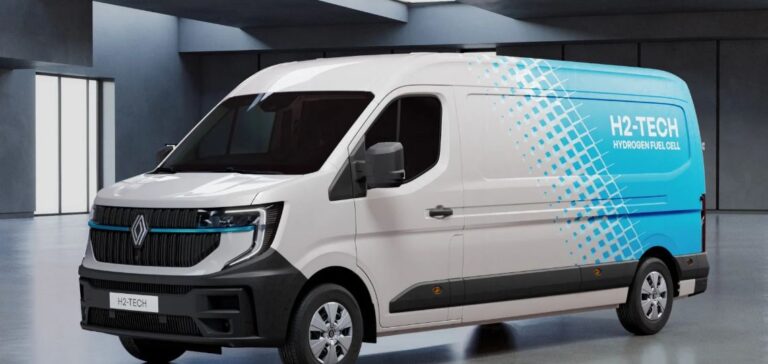Hyvia, a hydrogen utility vehicle manufacturer and joint venture between Renault and fuel cell producer Plug, has been placed in liquidation, effectively ending its operations. Based in Flins, near Paris, the company employed 110 people and was committed to producing hydrogen-powered utility vehicles, a market segment deemed too limited to ensure its economic viability.
The challenges linked to the emergence of the hydrogen market
The difficulties faced by Hyvia primarily stem from the slow development of hydrogen mobility ecosystems in Europe. According to a statement from the company, the development of these propulsion technologies, along with the innovation needed to make these vehicles competitive, resulted in very high costs that were incompatible with the revenue generated by the business. Hyvia had been in default since December 2024, and the liquidation was pronounced after no credible offers for acquisition were received during the search for potential buyers led by the judicial administrator.
The insufficiency of green hydrogen as a major barrier
One of the key factors contributing to this situation is the insufficient supply of “green” hydrogen, produced from renewable energy sources. Renault’s CEO, Luca de Meo, pointed out in early February before the French National Assembly’s Economic Affairs Committee that while hydrogen vehicles offer certain advantages over electric vehicles, such as longer range and shorter recharging times, the market is not yet mature enough. He added that vehicles were being sold “at a loss” due to insufficient demand.
Renault’s ambitions in the face of competition
In 2022, Hyvia began assembling fuel cells at the historic Flins factory, a Renault site, while hydrogen-powered utility vehicles were also assembled in Batilly, Meurthe-et-Moselle. Renault aimed to position itself against competitors such as Stellantis, Hyundai, and Toyota, who are also developing hydrogen vehicles.
Uncertain future for employees and Renault’s projects
Despite Hyvia’s liquidation, Renault remains committed to hydrogen mobility. The group expects its future utility vehicle from the Flexis joint venture, due for 2026, to be equipped with a fuel cell. This project could provide a more viable model in a still-developing market. In the meantime, Hyvia’s management has announced that all employees will be supported or redeployed, with the backing of the shareholders, under an employment safeguard plan.






















